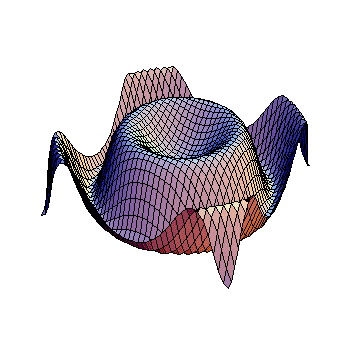How do you use the Fundamental Theorem of Calculus to find the derivative of #int xsin(πx) # from 1 to x^2?
1 Answer
Explanation:
Strictly speaking you don't, because you can't have the variable you're integrating show up in the limits of integration. Assuming you meant something like
We see that the fundamental theorem of calculus states that
Where
Now, we just differentiate both sides
Using the chain rule:
However we know that
But since

